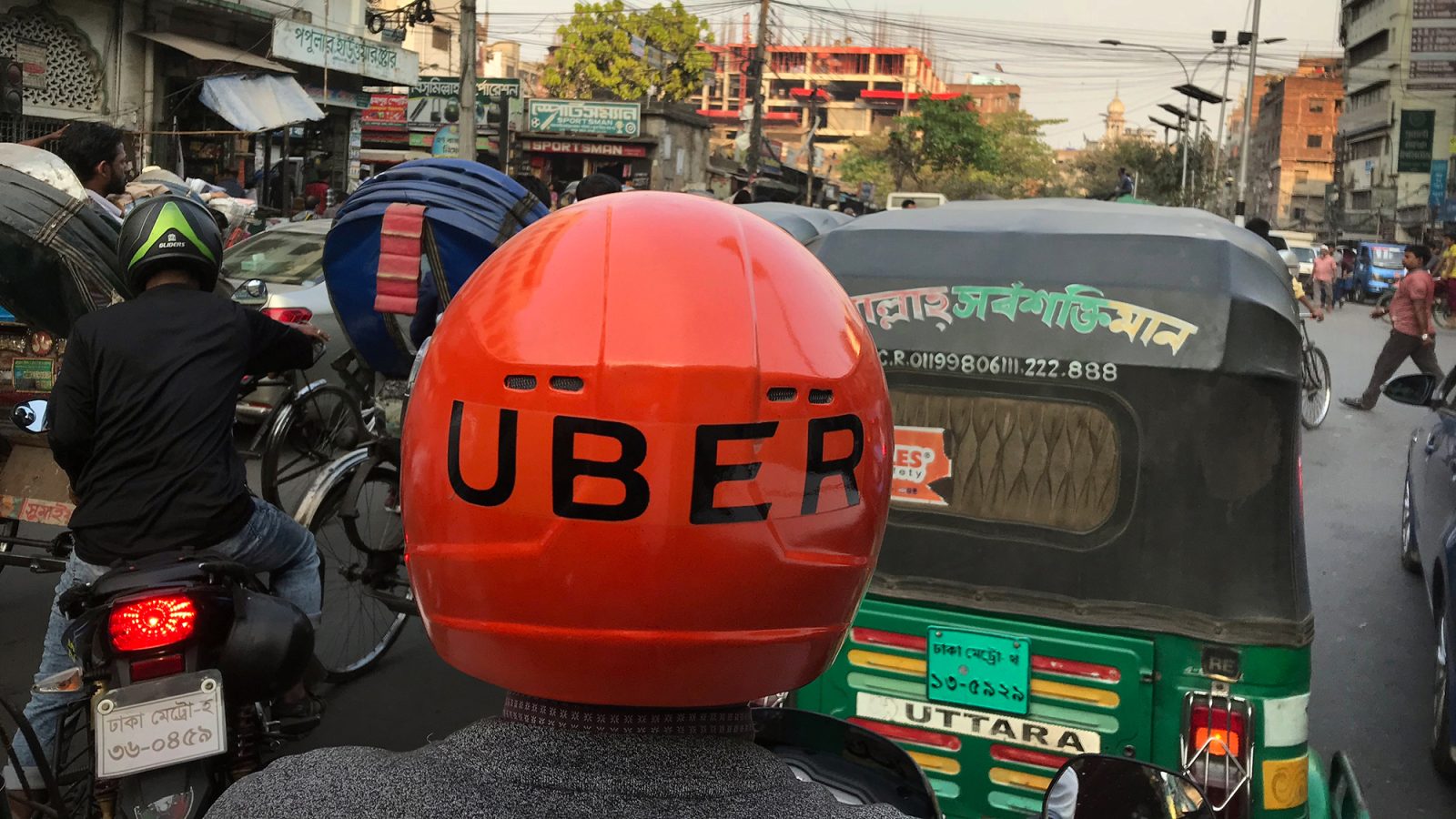Jitu Jisan is a Pathao bike-taxi driver in Dhaka. But, he said, taking bookings through the ride-hailing app is always the last resort for him. Typically, he uses the Pathao app only to find a customer, and once he meets them, he turns off the app, strikes a direct deal, and goes khep.
Khep is a popular colloquial term used for gig drivers bypassing platforms like Pathao and Uber in Bangladesh. In Bangla, khep translates to “side hustle.” “We’d rather khep than work on the apps. All the effort is from [the drivers’] end anyway,” Jisan told Rest of World. “The motorcycles are ours, the bills for petrol are ours, it’s our hard work. Platforms only help by getting us on the apps, and even for that, they’re charging a commission.”
Over 60% of respondents in an April 2023 survey of 59 commuters in Bangladesh said they had taken khep riders in 2023, according to a study conducted by a group of researchers associated with BRAC University in Dhaka. It is estimated that there were 7.5 million rides per month across the country in 2020, and earlier this year, the research director at Bangladesh Institute of International and Strategic Studies said that the ride-sharing market is the largest segment within the country’s gig economy, worth $259 million in 2023 and expected to grow to $1 billion in the next five to seven years.
read more: https://restofworld.org/2023/uber-commission-fees-bangladesh/



Imagine an open source platform for this service.
Problem here is that “Open source platform” is a meaningless term. Open Source is a type of license that regulates how to redistribute source code. None of those principles apply to services and platforms, which are about data and control. If the Uber app would be Open Source, but still had to connect to the Uber server and play by its rules, nothing would change. Meanwhile if it played by its own rules, what rules would that be? There are no established rules for an “open” service platform, especially not when it comes to platform that have review and reputation systems build in.
Simply put, it’s really not clear how you can be “open” yet at the same time provide any level of protection against fraud and abuse.
Dreaming is free, so here’s my list:
How would you ensure safety of drivers and passengers with open source platforms?
Wouldn’t you need some sort of centralized authority to take on that risk and enforce rules to be followed and ban certain people from the platform?
Bitch please. As if uber gives 2 shits about secruity. They are an app platform? What are you going to do, run into a local tech park and shout at the receptionist “EMERGENCY!”. They will kick you out fast like they do a hobo in NYC.
Doesn’t sound profitable to me
Ah yes, because everything in life is about profit for yourself, instead of changing other people’s lives by enabling them to work.
Ok why don’t you fund it yourself then
Because I am funding another FOSS project that is saving lives
Profitable for who? The one hosting it foots the bill. If it was federated, all drivers could host their own instance like WordPress and a single app would connect to all instances and all drivers.
Agencies could start up to manage the tech for a negotiable fee if the drivers in the area didn’t want to bother with the tech.
Whether or not it could be profitable entirely depends on the hosting and delivery model. One guy could host the tech stack and charge maintenance fees and be in the green.
If you mean rich, then yeah, nobody would probably be rich. But you can build a small business as a hosting provider no problem, and the drivers would probably get a better deal. Uber employs so many people it requires they charge money. There’s a tipping point when the service provider becomes so large that their sheer operating expenses start to necessitate increased costs. Breaking up provides better value in that case.
You can’t trust tiny random “self-hosted” Uber services. They could use any random drivers with criminal records, or even without drivers licenses. They could have terrible cars and charge extra fees. You would never be able to trust the driver ratings. They could tell you the car will arrive in 5 minutes for 30 minutes.
These are all the problems people had with small taxi companies. Why would you replicate that in an app?
You can - the software would have to hook into a background check service. This can absolutely be done.